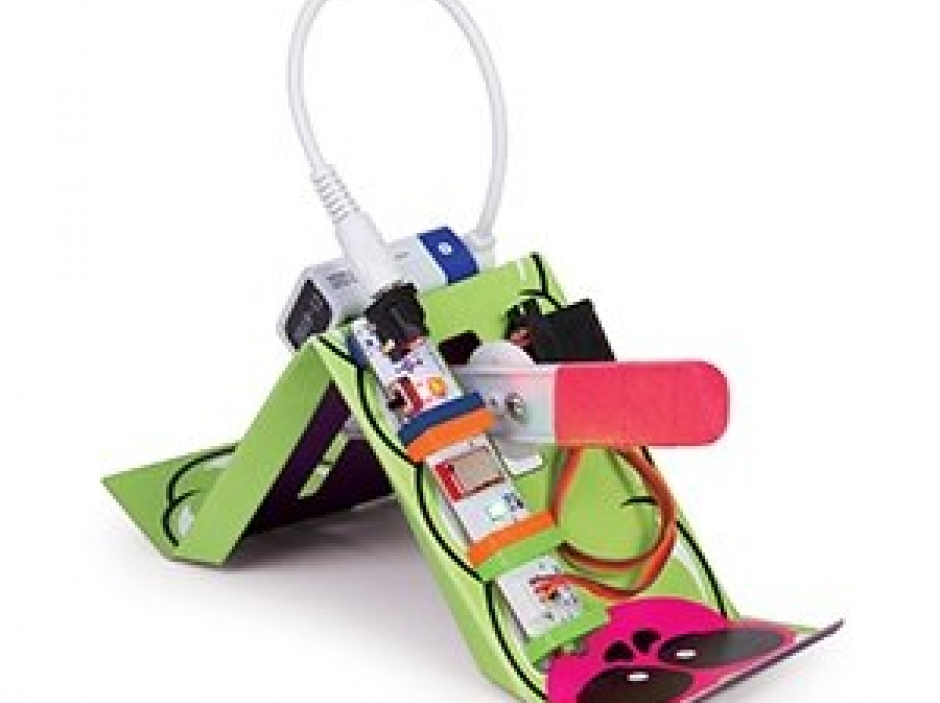Back when the world was only shown in black and white, electrical sets, like their close cousins chemistry sets, had some pretty dangerous potential side-effects.
But your kids live in the future, and there are numerous introductory science kits that give hands on experience without the risk of electrocution or burning down the house. Three companies stand-out in this category, each with a variety of products that have a unique spin on how to bring science to toyland. The basic premise is that as long as we're working with 9V batteries and without hot solder, the risk/reward ratio works in favor of education and exploration.
All the sets feature safe and interesting experiments, some more challenging than others. And, while they all have good instructions (though some require you to go on line to get them), none of them do a very good job in explaining the why and how things work. This is an area that all three companies should focus on in future releases.
LittleBits
LittleBits takes its name from the magnetic modules in its sets that link together to form electric circuits. Each littlebit has a single, color-coded purpose and are designed so that they can only link in the right direction, such that they can't be damaged by improper connection. Depending on the kit there are motors, dimmers, blinking lights, sliders, and knobs. Pink bits are input modules like buttons and sensors, Green are output parts like lights, motors, and speakers.
The lastest set is Gizmos & Gadgets, 2nd Edition ($199.95) now has an app and parts that allow inventions to be controlled by smartphone app. As the name suggests the emphasis here is on building (mostly whimsical) creations.
I am also a huge fan of last year's Electronics Synth Kit ($159.00) With it kids can create a variety of synthesizer s that actually work. The emphasis is on exploration and how adding or deleting modules can alter the sound.
The irony of LittleBits is that the price isn't little. Each of these sets is over one hundred dollars. For that you may be surprised by how few parts are in each box. Yes, you can add sets together and you can purchase additional modules, but some will be off-put by the cost. This is really a personal decision as there is a lot of play value in each box. For instance, the Gizmos & Gadgets has sixteen different projects, each well explained in the documentation.
CircuitScribe
Rather than just magnets, the Circuit Scribe kits use a pen with non-tox, conductive ink to connect circut boards. The basic set ($59.99) comes with 6 modules including 2 LEDs, a switch, a batter board, and other electronic parts, plus a booklet to help you get started. The mix of drawing and science was a big hit with kid testers. The Maker kit ($79.99) comes with more parts, including a potentiometer. The deluxe Developer Kit ($194.99) has 38 boards, one of which is a motor, a do-it-yourself circut boards that let you make your own modules.
Technology Will Save Us
TWSU has two types of kits. Some require soldering and others don't. We tested a number of the non-solder kits with good results. Here, rather than getting numerous projects with each set, as you do with LittleBits and CircuitScribe, here each box has a single focus. The most interesting one is the DIY Gamer Electronic Kit ($97.99). Here you can build your own barebones game console. The process isn't too difficult if you follow the directions in order. However, if you try it without the instructions you may go through several attempts to get the thing properly assembled. I see this as a good thing; it rewards reading, but some testers felt frustrated. Unfortunately, there isn't much of an explanation of how things work. A trickier kit is the DIY Synth Kit ($38.90). That one requires careful insertion of wires and small parts into the circuit board, rather than just matching up boards and sliding the pins together. All the TWSU kits are interesting, and are often best appreciated as parent-child co-efforts.


